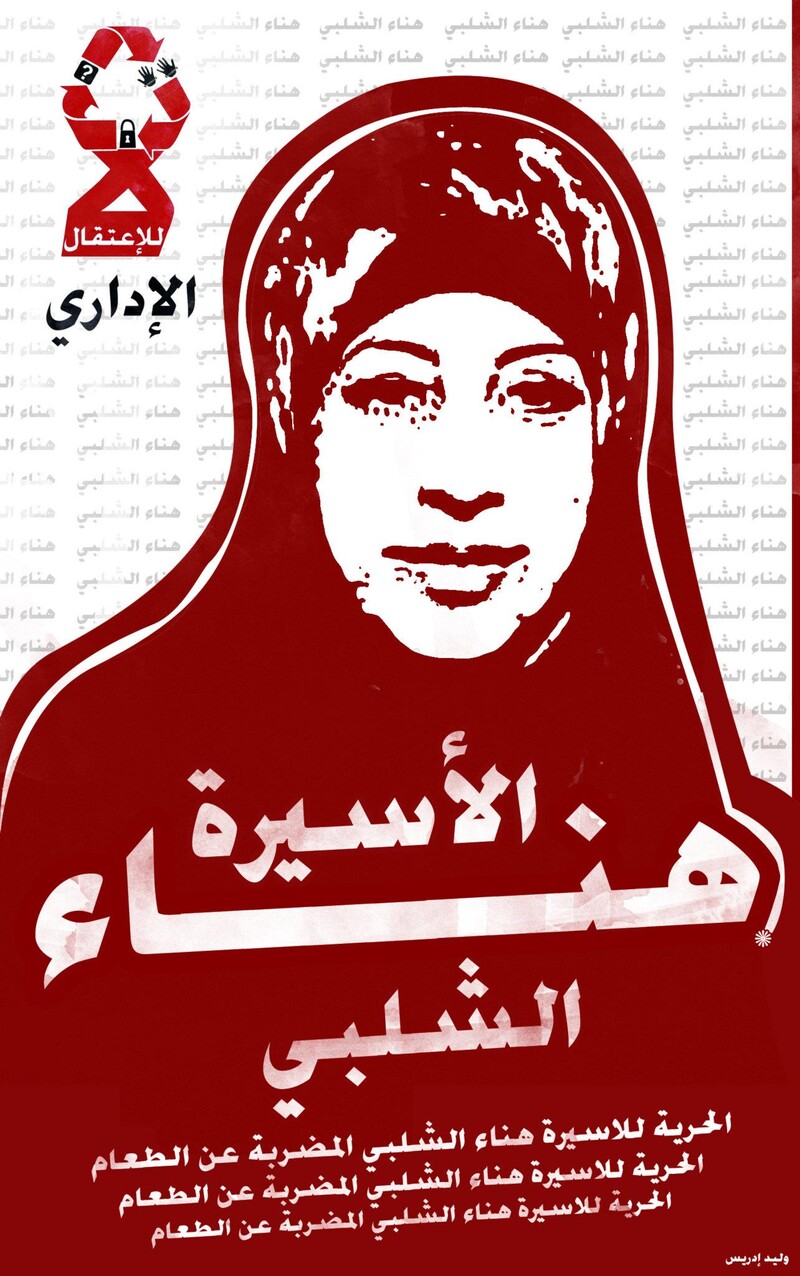6 March 2012

While almost the entire US Congress genuflected to Israel and its supposed “democracy” at the annual AIPAC convention in Washington this week, victims of Israel’s political repression languished in its prisons ignored by world media.
Today, Hana al-Shalabi marks 20 days of continuous hunger strike against her detention without charge or trial by Israel since a violent raid on her family home in the occupied West Bank village of Burqin, near Jenin on 16 February.
During his speech at AIPAC on Sunday, US President Barack Obama uttered not one word about such abuses by Israel, to which he pledged unconditional US support.
Hana told a lawyer from Addameer that she has not eaten and has only been drinking water since her arrest and has been suffering other severe symptoms. Israel’s prison service has denied requests for her to be examined by doctors from Physicians for Human Rights.
She is one of more than 300 “administrative detainees” held by Israel, often indefinitely, without charge or trial. This number includes at least 21 democratically-elected members of the Palestinian Legislative Council.
Solidarity marches have been held in her home village where Hana’s parents have also been on hunger strike.
Amnesty International has issued an action alert calling on people to contact Israeli authorities directly to release al-Shalabi and all administrative detainees immediately “unless they are promptly charged with internationally recognizable criminal offences and brought to trial in full conformity with international fair trial standards,” and to ensure humane treatment including regular access to doctors, lawyers and family.
Full text of Addameer/Physicians for Human Rights - Israel statement
Hana Shalabi: 20 Days on Hunger Strike
Ramallah-Jaffa, 6 March 2012 - Notwithstanding the Israeli Military Court decision on 4 March to shorten her administrative detention order from six months to four months, Hana Shalabi expressed her undeterred intention to continue her hunger strike, now on its 20th day, in protest of the torture, assault and degrading treatment to which she has been subjected and of her ongoing detention without charge or trial.
Yesterday, 5 March, Hana stated during a visit with Addameer-affiliated lawyer Muna Naddaf that she has not eaten and has only been drinking water since her arrest. During the past four days, she has only been able to drink 1.5 liters of water total due to experiencing extreme nausea, though she has not been vomiting. She stated that she is feeling pain in her chest below her heart and pain above her waist, in addition to dizziness. The lawyer noted that Hana had difficulty speaking without pausing, and would breathe for moments before resuming speech. The lawyer also observed that Hana looked very tired and did not move very much.
Hana reiterated that since February 27 she has refused medical examinations by Israeli Prison Service (IPS) doctors. During the previous visit with Addameer Lawyer Samer Sam’an on 27 February, Hana stated that she would only agree to receive medical attention from Physicians for Human Rights-Israel (PHR-Israel). On 4 March, the IPS denied the request made by PHR-Israel to allow PHR-Israel doctors to visit Hana. The request was denied on the grounds that granting visiting access to an external doctor is based on the right to a second medical opinion, and since Hana refuses to be examined by doctors from the IPS, she does not qualify as a case where such a visit is granted. On 4 March, PHR-Israel filed a petition to the District Court in Petach Tikva demanding that the IPS approve without delay a visit by PHR-Israel doctors to Hana. The petition, which will be heard tomorrow, 7 March, states that according to the Israeli Medical Association, two weeks after the beginning of a hunger strike the decomposition of muscle tissue commences, including the heart muscle.
Hana confirmed that on 16 February, she was forcibly strip searched by a male soldier and assaulted, merely hours after soldiers brought her to Salem Detention Center following her arrest. In the affidavit given to Addameer Lawyer Samer Sam’an, Hana described the forced strip search and assault at the hands of the soldiers of the Israeli Occupying Forces as “utterly degrading” and that what they did to her was “not acceptable in all customs of the world”. She subsequently began her hunger strike and was placed in solitary confinement.
On 4 March, during the Military Court of First Instance session to review her administrative detention order issued by the Israeli military commander on 23 February, Judge Dalya Kaufman dismissed the request by Hana’s lawyers to call on witnesses to testify to the assault and abuse inflicted upon Hana. The judge stated that the request was denied based on the fact that “the prosecution requested the military police to conduct an investigation”. The judge then confirmed her administrative detention order for a period of four months.
On 5 March, an appeal was filed to the Israeli Military Court of Appeals regarding Hana’s administrative detention order. The session is scheduled for tomorrow, 7 March, at 1:30pm. On 1 March, Hana’s lawyers also filed a complaint to the Israeli Attorney General and to the Israeli military prosecutor regarding the assault.
Notably, during the past week, other Palestinian political prisoners have begun to join in Hana’s hunger strike in protest of the unjust Israeli military court system, which does not afford them due process and does not conform to or abide by International legal standards.
Addameer and PHR-Israel call on the local and international communities, including the UN Office of the High Commissioner for Human Rights and the European Union, to take immediate action and intervene with Israel in the strongest manner possible to pressure Israel to immediately facilitate medical visits to Hana Shalabi, unconditionally release Hana Shalabi and cease the use of administrative detention, and to conduct serious and independent investigation into the assault of Hana Shalabi and end its practice of torture, inhuman and degrading treatment.




